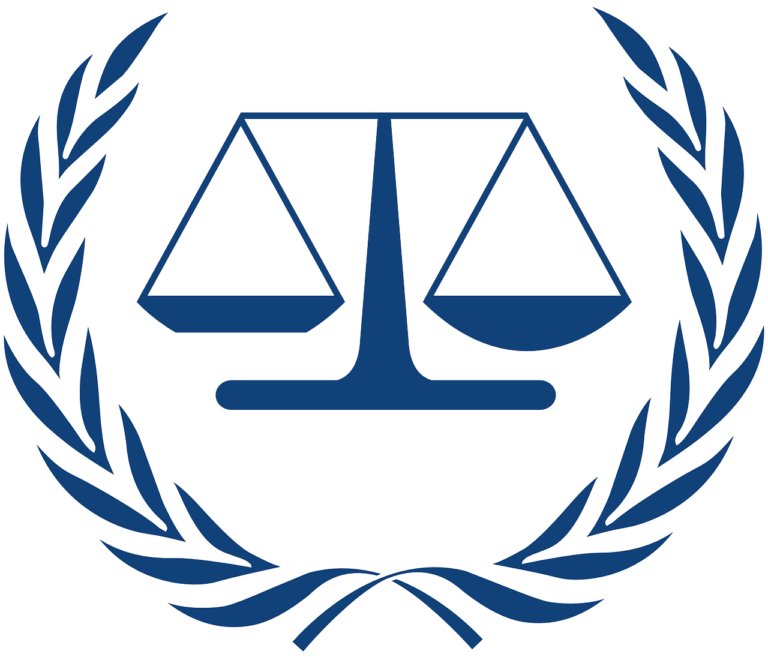Introduction
Definition of public defenders and private lawyers
Public defenders are lawyers who are appointed by the court to represent individuals who cannot afford to hire a private attorney. They provide legal representation to defendants in criminal cases, ensuring that their clients’ rights are protected and that they receive a fair trial. On the other hand, private lawyers are attorneys who are hired by individuals or organizations to provide legal services. They often specialize in specific areas of law and work directly with their clients to build a strong defense or pursue legal action. While public defenders are dedicated to ensuring equal access to justice for all, private lawyers offer the advantage of personalized attention and the ability to choose an attorney with specific expertise.
Importance of legal representation
The importance of legal representation cannot be overstated when it comes to the justice system. Whether it is a criminal case or a civil matter, having competent legal counsel can make a significant difference in the outcome of a case. Public defenders and private lawyers both play crucial roles in providing legal representation, each with their own set of pros and cons. Public defenders, who are appointed by the court to represent individuals who cannot afford a private attorney, ensure that everyone has access to legal representation regardless of their financial situation. On the other hand, private lawyers offer specialized expertise and personalized attention to their clients, but their services come at a cost. Regardless of the choice between a public defender or a private lawyer, the importance of legal representation remains paramount in ensuring fairness and justice in the legal system.
Overview of the pros and cons
In the legal system, individuals who are unable to afford the services of a private lawyer often rely on public defenders to represent them in court. Public defenders, who are government-appointed attorneys, have the advantage of being experienced in handling a wide range of criminal cases. They are also well-versed in the local legal system and have established relationships with judges and prosecutors. Additionally, public defenders are typically more affordable or even free for those who qualify. However, there are some drawbacks to relying on public defenders. Due to heavy caseloads, public defenders may have limited time and resources to devote to each individual case. This can result in less personalized attention and potentially affect the quality of representation. Furthermore, public defenders may have less flexibility in terms of negotiating plea deals or pursuing alternative resolutions. On the other hand, private lawyers, who are hired by individuals directly, offer certain advantages such as more time and resources to dedicate to each case, as well as the ability to tailor their services to the specific needs of their clients. However, private lawyers can be significantly more expensive and may not be accessible to everyone. Ultimately, the choice between public defenders and private lawyers depends on various factors, including the complexity of the case, the individual’s financial situation, and personal preferences.
Pros of Public Defenders

Cost-effective legal representation
Cost-effective legal representation is a crucial aspect to consider when comparing public defenders and private lawyers. Public defenders, who are appointed by the court to represent indigent clients, provide legal services at no cost or at a significantly reduced fee. This option is particularly beneficial for individuals who cannot afford to hire a private lawyer. On the other hand, private lawyers charge their clients based on hourly rates or a fixed fee. While private lawyers may be more expensive, they often offer a higher level of personalized attention and expertise. Ultimately, the choice between public defenders and private lawyers depends on the individual’s financial situation and the complexity of their case.
Extensive experience in criminal defense
When it comes to criminal defense, extensive experience is crucial. Public defenders and private lawyers both have their own advantages and disadvantages, but one area where private lawyers often excel is in their extensive experience in handling criminal cases. Private lawyers typically have a specialized focus on criminal defense and have spent years honing their skills and knowledge in this area of law. This extensive experience allows them to navigate the complexities of the legal system with ease and provide the best possible defense for their clients. With a deep understanding of criminal law and a wealth of courtroom experience, private lawyers are well-equipped to handle even the most challenging cases. Their track record of success and their ability to build strong defense strategies make them a valuable asset for those facing criminal charges.
Dedication to protecting the rights of the accused
Public defenders and private lawyers both have a dedication to protecting the rights of the accused, although they approach it in different ways. Public defenders, who are appointed by the court to represent individuals who cannot afford private representation, are passionate about ensuring equal access to justice for all. They often work with limited resources and heavy caseloads, but their commitment to their clients is unwavering. On the other hand, private lawyers, who are hired by individuals or organizations, have the advantage of more resources and time to dedicate to each case. They are able to provide personalized attention and tailor their defense strategies to the specific needs of their clients. While both public defenders and private lawyers share the same goal of protecting the rights of the accused, their methods and resources may differ, ultimately leading to different outcomes in each case.
Cons of Public Defenders

Heavy caseloads leading to limited time for each client
One of the major challenges faced by public defenders is heavy caseloads, which often result in limited time for each client. With a large number of cases to handle, public defenders are often overwhelmed and have to prioritize their time and resources. This can lead to a lack of individual attention and thorough preparation for each case, potentially impacting the quality of representation. In contrast, private lawyers typically have fewer cases, allowing them to dedicate more time and attention to each client. This can result in a more personalized and comprehensive approach to legal representation. However, it is important to note that private lawyers may come at a higher cost, making them less accessible to individuals who cannot afford their services.
Lack of resources and funding
One major disadvantage of public defenders compared to private lawyers is the lack of resources and funding. Public defender offices often face budget constraints, leading to limited staff, outdated technology, and inadequate training. As a result, public defenders may not have the same access to expert witnesses, investigative tools, or research materials as their private counterparts. This can hinder their ability to effectively represent their clients and provide a strong defense. Additionally, the heavy caseloads that public defenders often carry can further exacerbate the lack of resources, making it challenging to dedicate sufficient time and attention to each individual case. In contrast, private lawyers typically have more financial resources at their disposal, allowing them to hire a larger support staff, utilize cutting-edge technology, and invest in ongoing professional development. This disparity in resources can create an imbalance in the quality of legal representation between public defenders and private lawyers.
Perception of being less motivated or competent
One of the major concerns with public defenders is the perception that they may be less motivated or competent compared to private lawyers. This perception arises due to several factors. Firstly, public defenders often have heavy caseloads and limited resources, which can make it challenging for them to provide individualized attention to each case. Additionally, public defenders are assigned to represent clients who cannot afford private attorneys, leading to the assumption that they may not have the same level of expertise or dedication. However, it is important to note that this perception is not always accurate. Many public defenders are highly skilled and passionate about their work, despite the challenges they face. Ultimately, the perception of being less motivated or competent may stem from a lack of understanding about the complexities and demands of public defense work.
Pros of Private Lawyers
Personalized attention and focus on individual cases
One of the key advantages of hiring a private lawyer is the personalized attention and focus they provide on individual cases. Unlike public defenders who often have heavy caseloads and limited resources, private lawyers have the ability to dedicate more time and resources to each client. This allows them to thoroughly analyze the details of the case, conduct extensive research, and develop a strong defense strategy tailored to the specific needs of the client. The personalized attention offered by private lawyers ensures that every aspect of the case is carefully considered, increasing the chances of a successful outcome for the client.
Access to greater resources and expert witnesses
One of the advantages of hiring a private lawyer is the access to greater resources and expert witnesses. Private lawyers often have a larger network and can tap into various resources to build a strong defense for their clients. They may have connections with forensic experts, investigators, and other professionals who can provide valuable insights and evidence to support their case. Additionally, private lawyers have the financial means to hire top-notch expert witnesses who can testify on behalf of their clients. These expert witnesses can provide specialized knowledge and expertise that can significantly impact the outcome of a case. In contrast, public defenders may have limited resources and may not have the same level of access to expert witnesses, which can put their clients at a disadvantage. Therefore, when it comes to access to greater resources and expert witnesses, hiring a private lawyer can be highly beneficial.
Ability to choose a lawyer with specific expertise
One of the advantages of hiring a private lawyer is the ability to choose a lawyer with specific expertise. Unlike public defenders who are assigned to cases based on availability, private lawyers can be selected based on their experience and knowledge in a particular area of law. This allows individuals to find a lawyer who has a deep understanding of the specific legal issues they are facing, increasing the chances of a successful outcome. Whether it is criminal defense, family law, or personal injury, being able to choose a lawyer with specialized expertise can greatly benefit individuals seeking legal representation.
Cons of Private Lawyers

Higher cost and potential financial burden
One of the main drawbacks of hiring a private lawyer is the higher cost and potential financial burden it may impose. Private lawyers often charge exorbitant fees for their services, making it difficult for individuals with limited financial resources to afford their representation. In contrast, public defenders are provided by the government at no cost to the defendant, ensuring that everyone has access to legal representation regardless of their financial situation. The high cost of private lawyers can be a significant barrier for many individuals, forcing them to rely on public defenders who may already have a heavy caseload and limited resources.
Possibility of unethical practices or lack of transparency
One of the main concerns when it comes to public defenders and private lawyers is the possibility of unethical practices or lack of transparency. While public defenders are appointed by the court and are expected to act in the best interest of their clients, there have been instances where they have been overworked and unable to provide adequate representation. On the other hand, private lawyers are accountable to their clients and have a financial incentive to provide quality representation. However, there have also been cases of private lawyers prioritizing profit over the well-being of their clients. It is crucial for the legal system to address these concerns and ensure that both public defenders and private lawyers adhere to ethical standards and maintain transparency in their practices.
Limited availability for low-income individuals
Limited availability for low-income individuals is one of the major drawbacks of public defenders. Due to the overwhelming number of cases and limited resources, public defenders often struggle to provide adequate representation to those who cannot afford private lawyers. This can result in longer waiting times for legal assistance and may lead to a compromised defense for individuals with limited financial means. On the other hand, private lawyers, although more expensive, offer a wider range of options and availability for clients. They are able to dedicate more time and resources to each case, ensuring a more personalized and thorough defense. However, this advantage is often only accessible to those who can afford their services, leaving low-income individuals at a disadvantage in the criminal justice system.
Conclusion

Considerations when choosing between public defenders and private lawyers
When choosing between public defenders and private lawyers, there are several important considerations to keep in mind. One of the main factors to consider is the cost. Public defenders are provided by the government and are typically free of charge for individuals who cannot afford private representation. On the other hand, private lawyers require payment for their services, which can vary depending on the complexity of the case and the lawyer’s experience. Another crucial factor is the level of expertise and experience. Public defenders often handle a large caseload and may have limited resources, while private lawyers may have more time and resources to dedicate to each case. Additionally, the level of personal attention and communication may differ between the two options. Public defenders may have limited availability due to their heavy workload, whereas private lawyers may provide more personalized attention and frequent updates on the case. Ultimately, the decision between a public defender and a private lawyer should be based on the individual’s financial situation, the complexity of the case, and their desired level of personal attention and communication.
Importance of evaluating individual circumstances
When it comes to the choice between public defenders and private lawyers, evaluating individual circumstances is of utmost importance. Each case is unique, and factors such as the severity of the charges, the defendant’s financial situation, and the complexity of the legal issues at hand must be taken into account. Public defenders, who are appointed by the court to represent individuals who cannot afford a private attorney, play a crucial role in ensuring access to justice for those who are economically disadvantaged. However, their heavy caseloads and limited resources can sometimes result in less personalized attention and a potential compromise on the quality of representation. On the other hand, private lawyers, who are hired by individuals or organizations, often have more time and resources to dedicate to each case, allowing for a more tailored approach. However, their services come at a cost and may not be affordable for everyone. Ultimately, the importance of evaluating individual circumstances lies in finding the best legal representation that aligns with the specific needs and resources of each defendant.
The need for a fair and accessible legal system
In order to ensure a fair and accessible legal system, it is crucial to consider the role of public defenders and private lawyers. Public defenders play a vital role in providing legal representation to individuals who cannot afford private attorneys. They are appointed by the court and are responsible for defending individuals accused of crimes. On the other hand, private lawyers are hired by individuals or organizations to represent their interests in legal matters. While public defenders are often overworked and have heavy caseloads, private lawyers have the advantage of more resources and time to dedicate to each case. Both public defenders and private lawyers contribute to the overall functioning of the legal system, and striking a balance between the two is essential for ensuring justice for all.








































